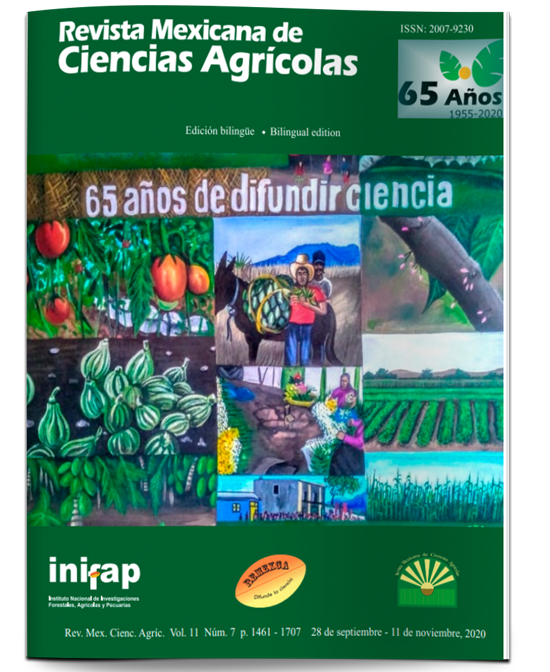Evaluation of the sustainability of corn cultivation in Villaflores and La Trinitaria, Chiapas
DOI:
https://doi.org/10.29312/remexca.v11i7.2673Keywords:
agroecological techniques, agro-ecosystem, MESMIS methodology, sustainable developmentAbstract
Today, major environmental events have had an impact on the population at different economic and social levels and above all, on agricultural production. Hence, sustainability is a priority given the need for development that not only involves natural resources, but is also interrelated with economic and social aspects. The objective of this research lies in the interest of measuring the sustainability of the corn production system, in order to determine the levels of sustainability of the productive system, and formulate alternatives that contribute to the design of the sustainable system that benefit productivity with social equity, the conservation of natural resources and the decision-making of the productive units for the year 2018. For this reason, it was evaluated through the framework of evaluation of management systems incorporating sustainability indicators. From the results, it is shown that the sustainability values for the municipalities of Villaflores and La Trinitaria are 3.78 and 4.81, respectively, with a limited sustainable level prevailing. It is concluded that the sustainability of the production system may be maintained in optimal and stable conditions, as changes are made in economic benefits, self-reliance, participatory equity in the production process and in decision-making, implementation of agro-ecological techniques and adoption of sustainable practices and the sustained management of the corn crop to preserve and conserve the natural resource in an integral way.
Downloads
Downloads
Published
How to Cite
Issue
Section
License
The authors who publish in Revista Mexicana de Ciencias Agrícolas accept the following conditions:
In accordance with copyright laws, Revista Mexicana de Ciencias Agrícolas recognizes and respects the authors’ moral right and ownership of property rights which will be transferred to the journal for dissemination in open access. Invariably, all the authors have to sign a letter of transfer of property rights and of originality of the article to Instituto Nacional de Investigaciones Forestales, Agrícolas y Pecuarias (INIFAP) [National Institute of Forestry, Agricultural and Livestock Research]. The author(s) must pay a fee for the reception of articles before proceeding to editorial review.
All the texts published by Revista Mexicana de Ciencias Agrícolas —with no exception— are distributed under a Creative Commons License Attribution-NonCommercial 4.0 International (CC BY-NC 4.0), which allows third parties to use the publication as long as the work’s authorship and its first publication in this journal are mentioned.
The author(s) can enter into independent and additional contractual agreements for the nonexclusive distribution of the version of the article published in Revista Mexicana de Ciencias Agrícolas (for example include it into an institutional repository or publish it in a book) as long as it is clearly and explicitly indicated that the work was published for the first time in Revista Mexicana de Ciencias Agrícolas.
For all the above, the authors shall send the Letter-transfer of Property Rights for the first publication duly filled in and signed by the author(s). This form must be sent as a PDF file to: revista_atm@yahoo.com.mx; cienciasagricola@inifap.gob.mx; remexca2017@gmail.
This work is licensed under a Creative Commons Attribution-Noncommercial 4.0 International license.



